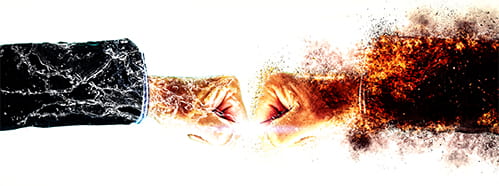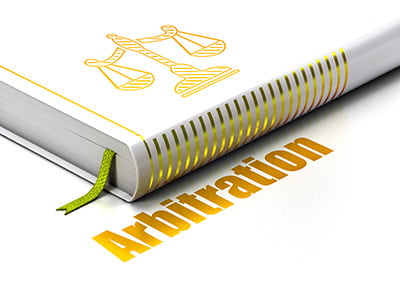Arbitration Law in the UAE
"Arbitration is justice blended with charity" – Nachman of Bresloy
 Arbitration is a famous method of resolution of disputes. The UAE's first stand-alone law on arbitration is governed by the Federal Arbitration Law No. 6 of 2018 which is known as “United Arab Emarites Arbitration Law”. The new law was formed by repealing the Articles 203 to 218 of the UAE Civil Procedures Law No. 11 of 1992 (“CPC”). The new law came into force in June 2018. The United Arab Emirates Arbitration Law is based on the UNCITRAL Model Law on International Commercial Arbitration. The UAE Arbitration Law have 61 provisions, most of the provisions are in line with the current arbitration process and arbitral framework to international standards.
Arbitration is a famous method of resolution of disputes. The UAE's first stand-alone law on arbitration is governed by the Federal Arbitration Law No. 6 of 2018 which is known as “United Arab Emarites Arbitration Law”. The new law was formed by repealing the Articles 203 to 218 of the UAE Civil Procedures Law No. 11 of 1992 (“CPC”). The new law came into force in June 2018. The United Arab Emirates Arbitration Law is based on the UNCITRAL Model Law on International Commercial Arbitration. The UAE Arbitration Law have 61 provisions, most of the provisions are in line with the current arbitration process and arbitral framework to international standards.
There are other arbitral institutions in the UAE. They are Dubai International Arbitration Centre where they administers arbitrations under the DIAC Arbitration Rules 2007, DIFC London Court of International Arbitration Centre where they administers arbitrations under the DIFC-LCIA Arbitration Rules, Abu Dhabi Conciliation and Arbitration Centre administers arbitrations under the Procedural Regulations of the ADCCAC, The Emirates Maritime Arbitration Centre (EMAC), Sharjah International Commercial Arbitration Centre (Tahkeem), Ras Al-Khaimah Centre for Reconciliation and Commercial Arbitration.
The arbitration process has some advantages of arbitration over litigation. This includes the confidentiality of the process, the arbitrators with expertise will be included to deal with disputes involving technical subject matters. Arbitrations may be conducted in English, or in any other language agreed to by the parties, Oral evidence is permitted in arbitration and the merits of a decision cannot be challenged. The disadvantages include the cost of Arbitral proceedings and Arbitration awards have to be ratified by the courts to be enforceable.
Requirements
The requirements for an arbitration agreements is that the agreement should be in writing, it can be incorporated by reference to another document containing an arbitration clause, The person should have specific authority to agree to arbitration on behalf of a body corporate/company, if the agreement is entered into by a natural person, he must have the legal capacity to dispose of his rights. The wording of the arbitration agreement must be unclouded.
If there is no agreement between the parties, the Arbitration Law gives liberty to conduct the arbitration by three arbitrators. Where there is more than one arbitrator their number must be odd. Where there is an even number of arbitrators, an additional arbitrator will be appointed to act as chairman. If the arbitrators appointed by the party cannot agree on the chairperson, the appointment will be made by the arbitration institution. Arbitrators may be challenged and removed when justifiable doubt exists as to their impartiality or independence, as defined by the General Standards Regarding Impartiality, Independence and Disclosure and also when he is unable to perform their functions or acts in a manner that leads to unjustifiable delays in the arbitral proceedings or fails to act in accordance with the arbitration agreement. The disclosures made by an arbitrator regarding impartiality should be made in writing to all parties and an arbitrator must decline the appointment should there be any doubt in regard to impartiality or independence.
Procedure
 The UAE arbitration law contains limited provisions for the procedural aspects of arbitration. The arbitration is commenced by filing of a request for arbitration. If the arbitration is to be initiated by lawyers, proof of authority by means of a power of attorney is usually required. The other procedures for initiating proceedings will be based on the arbitration rules. The Arbitration Law gives parties the freedom to agree on the procedural steps in accord with the agreed rules. If there is no agreement, the tribunal can adopt the procedural with the provisions of the Arbitration Law and any relevant international treaties.
The UAE arbitration law contains limited provisions for the procedural aspects of arbitration. The arbitration is commenced by filing of a request for arbitration. If the arbitration is to be initiated by lawyers, proof of authority by means of a power of attorney is usually required. The other procedures for initiating proceedings will be based on the arbitration rules. The Arbitration Law gives parties the freedom to agree on the procedural steps in accord with the agreed rules. If there is no agreement, the tribunal can adopt the procedural with the provisions of the Arbitration Law and any relevant international treaties.
Arbitration law allows an arbitral tribunal to request a tribunal to order a party or a third party to give evidence or produce any document which is essential for deciding the dispute. The arbitrators can order, at any time during arbitration the disclosure of documents, attendance of experts, witness testimony and hearings.
Award
The Article 21 of the Arbitration Law recognises the arbitral tribunals’ power to award interim relief. This can be occurred on the request of the parties or by own. The Article 21 (4), a party for whom an interim measure has been ordered may request the competent court to enforce the order of tribunal within 15 days of receipt of the request.
The Article 41 of the arbitration law sets out the requirements in the content of arbitration award. The award should be in writing, the decision should be based on the majority opinion writing down the difference of opinion, the award should be signed by the arbitrators and the arbitral award should include the names and address of parties, name of arbitrators, their addresses, text of arbitration agreement, summary of the parties claim, reason on which award is based, date and place of issue of award.
The Arbitrators are directed to provide for the costs of arbitration in the award. Costs may include arbitrator’s fees and expenses, costs of expert advice, costs related to the arbitration proceedings, and any other legal fees, charges, costs and expenses reasonably incurred by a party throughout the proceedings. The arbitrators may withhold any award until the tribunal’s fees and expenses are paid in full.
 The Article 52 of the UAE Arbitration Law provides that an award is binding to the parties and has the force of res judicata. The Article 55 of the law says about the rectification of award. The UAE Arbitration Law, the DIFC Arbitration Law, and the ADGM Arbitration Regulations set forth limited grounds for setting aside arbitral awards. The UAE Arbitration Law requires to furnish proof for setting aside the award they are invalidity of the arbitration agreement, incapacity of a party at the time of conclusion of the arbitration agreement, legal inability of a party to act, non-application of the substantive law chosen by the parties, non-compliance with the parties agreement, procedural irregularities.
The Article 52 of the UAE Arbitration Law provides that an award is binding to the parties and has the force of res judicata. The Article 55 of the law says about the rectification of award. The UAE Arbitration Law, the DIFC Arbitration Law, and the ADGM Arbitration Regulations set forth limited grounds for setting aside arbitral awards. The UAE Arbitration Law requires to furnish proof for setting aside the award they are invalidity of the arbitration agreement, incapacity of a party at the time of conclusion of the arbitration agreement, legal inability of a party to act, non-application of the substantive law chosen by the parties, non-compliance with the parties agreement, procedural irregularities.
Conclusion
The New Arbitration Law of UAE tends to enhance the support the UAE arbitration process. The new law gives a detailed legislative framework for arbitrations within the jurisdiction is aligned to international standards. Upon the evolution of the modernised Arbitration Law, the UAE had set its commitment to position itself as an attractive seat for international arbitration.
 English
English
 عربي
عربي Русский
Русский 官话
官话 português
português
 Türk
Türk 



.jpg&w=120&h=80&zc=1)






























